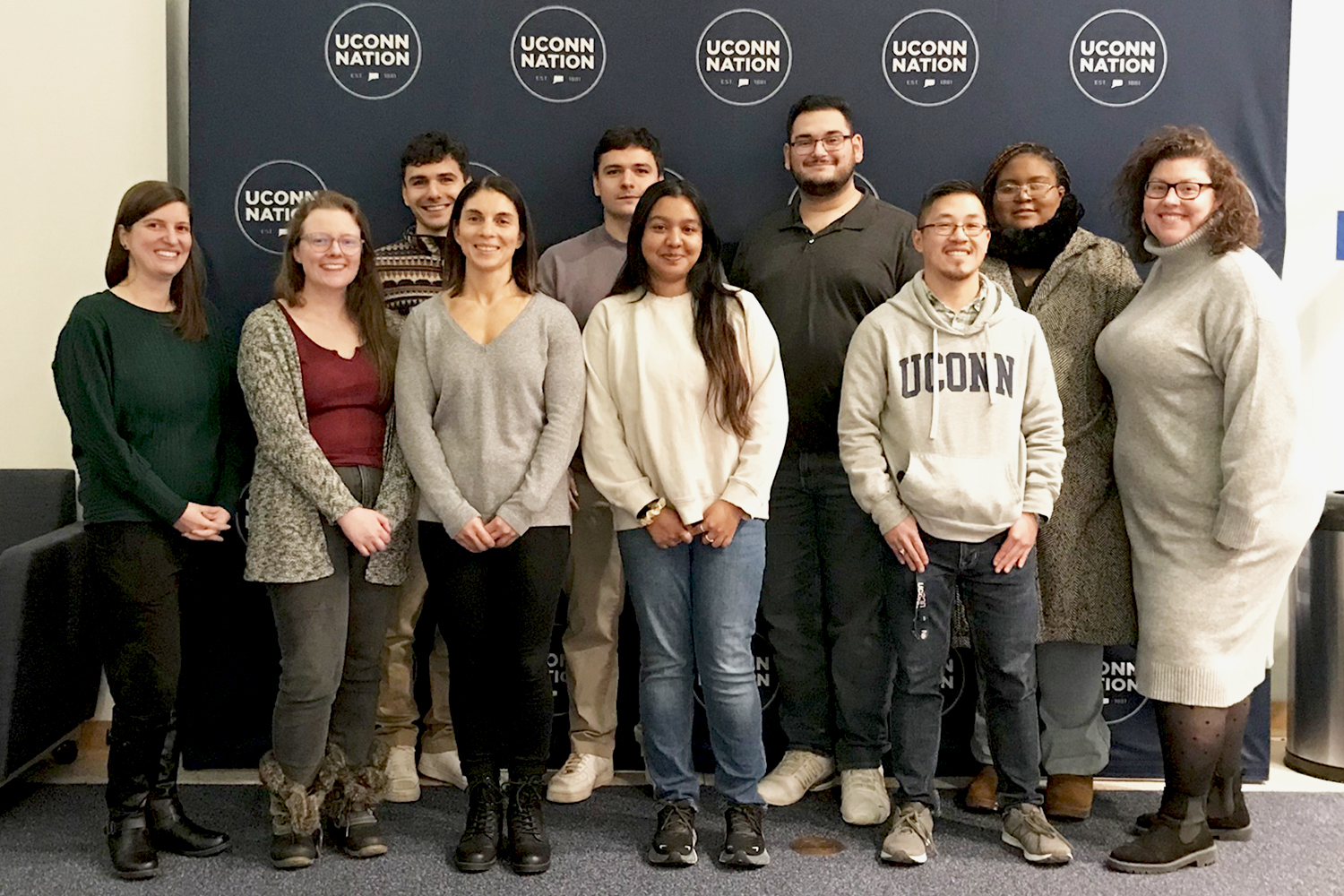Faculty members at UConn’s Neag School of Education are the recipients of not one, not two, but three $75,000 grants from the Spencer Foundation. Sakeena Everett, Alexandra Freidus, and Grace Player all recently received the competitive awards, which support transformative, methodologically rigorous education research projects that help create a better, more equitable society.
“UConn’s Neag School of Education’s mission is rooted in social justice and equity,” Dean Jason G. Irizarry says. “Those values are woven into the fabric of who we are and what we do and are evidenced in the cutting-edge research, teaching, and service our faculty and staff do. I am thrilled Dr. Everett, Dr. Freidus, and Dr. Player have been recognized for their work in these areas. I — along with their colleagues — will follow their work on these projects with great anticipation.”
The three researchers each have a few years to conduct their individual research projects, which they hope will impact students and educators across the nation.
Creating Space for Black Women’s Grief
Everett, an assistant professor in the Department of Curriculum and Instruction, is an avid literacy advocate and an expert in urban education, teacher education, and literacy education. While her previous work focused on the literacy development of Black male students across the K-12 continuum, her Spencer Foundation grant represents a pivot in her research focus.
“Just as I began my career on the tenure track, I experienced a death in my family,” Everett says. “I became primarily concerned with grief and started reading books and articles to help me understand what I was experiencing.”
Her grant is titled “Unexpected: Supporting Grieving Black Women & Cultivating Viable Institutional Supports” and hopes to develop and implement culturally responsive grief tools and resources for grieving Black women faculty. Everett says higher education bereavement policies and practices are severely detached from the realities of grief for all people, but grieving Black women often experience amplified “intersectional impacts” of racism, sexism, classism, and occupational vulnerability inside their grief.
“The goal of this is to creatively generate possibilities to acknowledge, assess, and build capacity for humane and transformative racial equity in grieving.” — Sakeena Everett, assistant professor
“Grief is a natural, human experience, but how people are able to experience grief is inequitably distributed,” she says.
The first phase of her research will include a national survey of Black women faculty to learn about their grief experiences and what resources are currently available to them. Individual interviews and small focus groups of three to four people will follow, which will help create community for the women and give them a space to talk about their grief. Everett plans to use the results from this mixed methods study to create culturally relevant and responsive resources that universities can implement.
“I’m hoping this research will affect faculty, certainly, but also K-12 teachers as I will communicate with education administrators about what I’m learning,” she says. “The goal of this is to creatively generate possibilities to acknowledge, assess, and build capacity for humane and transformative racial equity in grieving.”
Young People as Policy Actors
Freidus, through her position as an assistant professor in the Department of Educational Leadership, uses critical race theory to investigate how educators, policies, young people, and their families sustain and interrupt racial inequality in public schools. Research in this area tends to focus on the ways educators and administrators enact integration and diversity policies, but rarely centers those most affected by them: students.
“This project approaches young people as actors, rather than objects, of educational policy,” Freidus says. “It allows me to investigate how young people’s experiences can help us understand what school integration can and cannot offer educational justice.”
From 2019 to 2020, Freidus observed and interviewed high school students involved with the New York City organization Teens Take Charge (TTC). The activist group holds meetings and protests to propose new educational policies and apply pressure to local officials. Her initial work with TTC took place during a time of incredible national upheaval and civic unrest, and she says she became interested in how young people were making sense of it all. Her original plan was to follow some of the students during the 2020-2021 school year to see how their activism and civic learning continued, but the COVID-19 pandemic waylaid her plans. The Spencer Foundation grant allows her to finally reconnect with them, many of whom have transitioned away from TTC.
“This project approaches young people as actors, rather than objects, of educational policy.” — Alexandra Freidus, assistant professor
“I want to see how their identities as activists and students have evolved, as well as their current perceptions of diversity, segregation, and integration,” she says. “My initial outreach to some students has indicated their perceptions and perspectives have shifted, at times dramatically, as they experience new educational settings and respond to local policy changes.”
First, Freidus plans to conduct follow-up interviews with 30 of the original TTC members, then the second phase of her research will include focus group discussions among the same TTC alumni. She hopes the research will inform campaigns in New York City and elsewhere that focus on school integration and diversification.
“Many of these students have not been in touch with each other for two years,” she says. “I expect rich conversation as they reconnect and explore what has and has not changed over time.”
Girls of Color as Visionaries
Player is an assistant professor in the Department of Curriculum and Instruction and her work as a literacy scholar centers girls of color and their knowledge. Recently, she has been working with women of color in the Neag School’s teacher education programs to learn how they are utilizing their literacies and ways of knowing to enhance their teaching practices.
“My work is focused on the intersections of race and gender,” Player says. “Girls of color are often left in the margins even within conversations about race, so this racial equity grant from the Spencer Foundation will allow for work that’s collaborative, coalitional, and builds off girls’ voices rather than imposing our ideas of what they want and need on them.”
Player’s grant, “Curators of Educational Dreams,” will create a curatorial board of five New York City-based girls of color to build both online and in-person art galleries. The art will be created by girls of color and will explore their visions of what education means to them and what it can be in the future. The board will form in summer 2023, visit galleries, meet curators, create their own art, and outline goals for the project. The board will then write a call for submissions, create the online gallery, and in summer 2024 host the in-person event. A portion of the grant will pay the young women on the board for their time, allowing the project to be more accessible to those who otherwise would not be able to participate.
“Girls of color are often left in the margins … so this racial equity grant from the Spencer Foundation will allow for work that’s collaborative, coalitional, and builds off girls’ voices …” — Grace Player, assistant professor
“The curatorial advisor for the project, Dr. Tricia Kim of New York University’s Gallatin School of Individualized Study, is my thought partner and co-creator in this project,” Player says. “Without her brilliance and her experience and understanding in the arts world, this project would not exist.”
Player says she hopes this research will lead others within academia to incorporate and center youth in data collection and use art as part of research methods. Just as important, however, she wants to show the world girls’ visions of education.
“I want to show how girls imagine beyond our limited ways of thinking about education: what school is, who their teachers are, who their teachers should be, what their curriculum should be, what school should look like,” Player says. “All of this can be done in a way that is not dependent on what is but what could be.”
To learn more about the UConn Neag School of Education, visit education.uconn.edu and follow the Neag School on Instagram, Facebook, Twitter, and LinkedIn.



